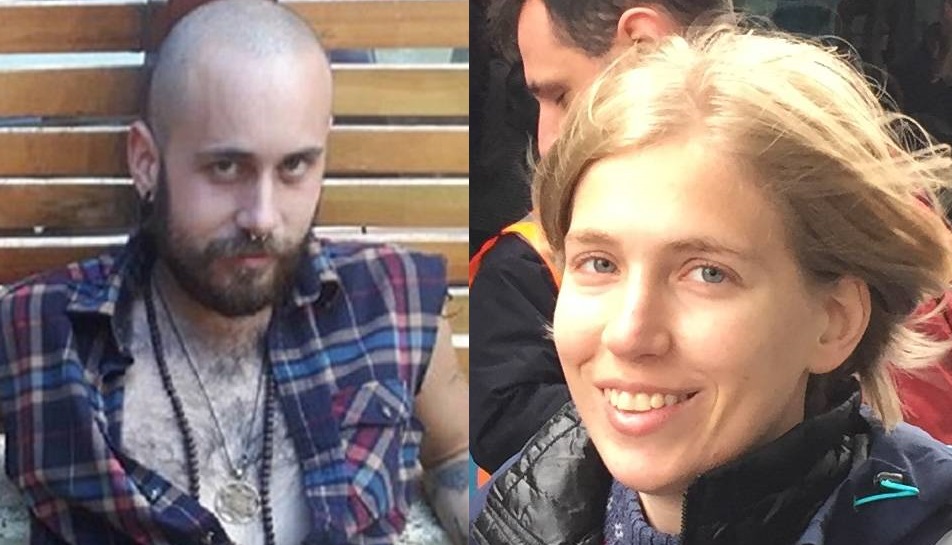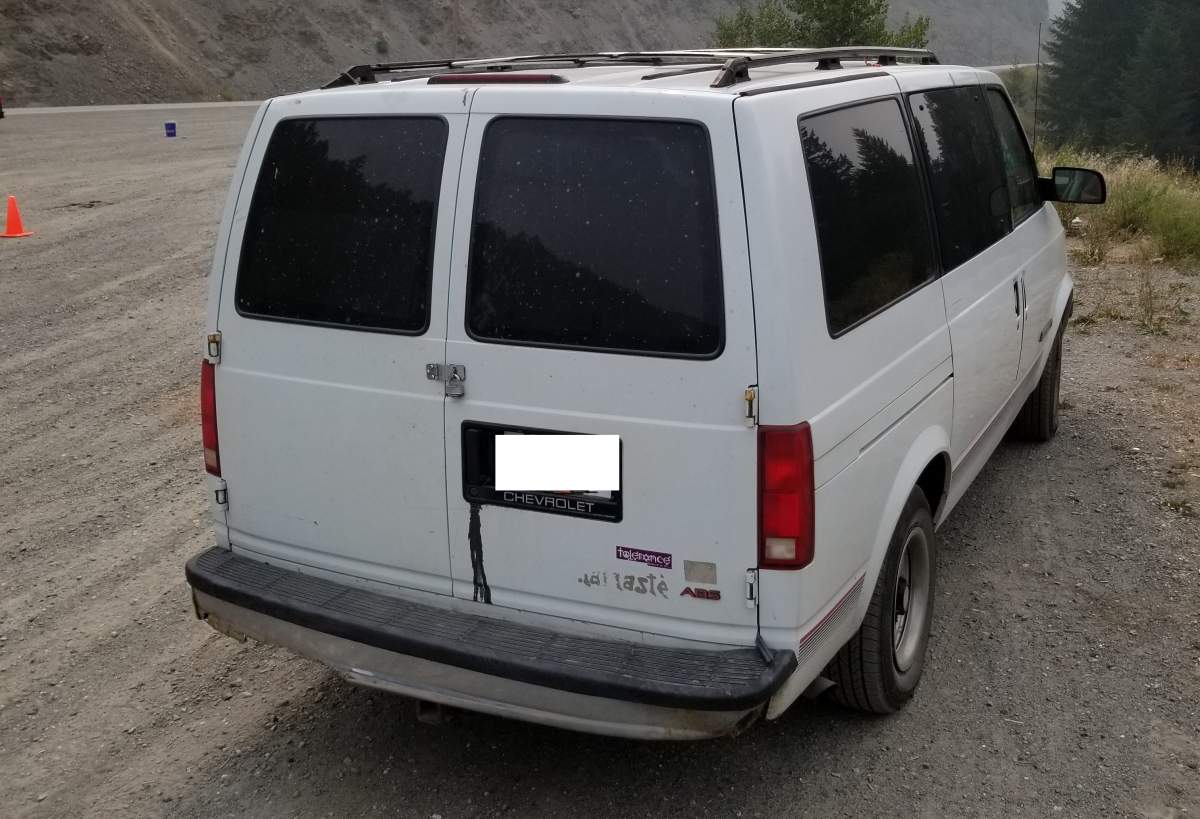WARNING: This story contains graphic and disturbing details, and is not suitable for all readers

Newly-released documents have revealed the horrific details about the case of a murdered Belgian tourist, including how a passerby narrowly missed an opportunity to intervene and save her life.
Sean McKenzie was sentenced to life in prison with no chance of parole for 23 years Tuesday after pleading guilty to second-degree murder in the killing of Amelie Sakkalis on Aug. 22, 2018.
Global News has obtained the agreed statement of facts submitted to the court in his case. Since the case did not go to trial, it is the first time many of the details have been made public.
Hitchhiking pickup
According to the documents, McKenzie, 28, had spent the summer living with his mother in Oliver, B.C. and was on his way to Vancouver where he planned to meet a friend and head to Burns Lake to do catering work at a resource industry camp.
READ MORE: Boston Bar killing: Man pleads guilty to 2nd-degree murder in death of Belgian tourist
Sakkalis, who had entered Canada on a work permit in November 2017, was travelling across Canada working various jobs and had last been working as a fruit picker in Penticton.
McKenzie left Oliver around 2 p.m. the day of the murder in his white Chevy Astro van.

Sakkalis left her Penticton hostel the same day, and hitchhiked first to Keremeos, then to Hedley where she was picked up by McKenzie.
CCTV footage from a Princeton gas station recorded the pair arriving shortly before 4 p.m., with Sakkalis in no apparent distress.
Violent assault
According to the agreed statement of facts, McKenzie’s attack began as the pair were driving west through Manning Park.
McKenzie stopped in a pullout and went into the back to look for his phone charger before turning on Sakkalis.
“Without any warning, Mr. McKenzie grabbed his hunting knife … and struck Ms. Sakkalis in the back of the head several times with the butt end of the knife,” the documents said.
Sakkalis screamed and fought back, biting his finger, but McKenzie overpowered her, pulled her onto a makeshift bed in the back of the van, bound her hands together with electrical tape and removed her clothes.

Get daily National news
“Ms. Sakkalis asked Mr. McKenzie if he was going to kill her and he said ‘No,'” reads the statement.
“She then asked, ‘Are you going to rape me?’ and Mr. McKenzie looked at her for some time and then said, ‘Yes.’ She asked why and Mr. McKenzie said, ‘Because, just because.'”
According to the statement of facts, McKenzie struggled to get an erection, but managed to briefly penetrate Sakkalis.
READ MORE: Belgian tourist identified as homicide victim near Boston Bar
“Mr. McKenzie grew angry and became filled with inexplicable rage. Nothing Ms. Sakkalis said or did triggered the anger he felt,” state the documents.

McKenzie then flipped Sakkalis onto her stomach and violently escalated the sexual assault.
After the assault, McKenzie bound Sakkalis’ feet together, put his pants on and began driving west, passing Hope and turning north towards Boston Bar, a remote place that he had visited before.
Escape attempt
According to the documents, though terrified, Sakkalis was not prepared to give up without a fight.
Shortly before 6:30 p.m., she managed to break free of her bonds.
“She launched herself forward into the front seat area screaming. She pulled the steering wheel and grabbed Mr. McKenzie by the throat. She opened the passenger side door and screamed for help,” according to the court documents.

McKenzie slammed on the brakes and a struggle ensued, in which McKenzie used his body to block the passenger side door before locking it.
Sakkalis grabbed McKenzie’s knife and attacked him with it, but he grabbed it by the blade, forcing it from her grip and cutting his palm in the process.
READ MORE: Woman killed near Boston Bar, homicide team appeals for tips
McKenzie then forced Sakkalis into the back of the van, and bound her hands and feet once again.
While the van was pulled over, it was spotted by a passing motorist, according to the documents.
“The motorist heard a blood-curdling scream come from the Astro and he saw a man matching Mr. McKenzie’s description,” it states.
The motorist turned around and began following the van, taking a short video that captured the vehicle’s licence plate.

But after following the van for a period of time and failing to observe anyone in the passenger seat, the driver peeled off and went on his way.
It was only when Sakkalis’ murder was reported in the media that he realized what happened and came forward with the video.
Murder
McKenzie drove about 12 kilometres north of Boston Bar, where he turned onto a dirt road and stopped in a remote wooded area where people had been dumping garbage, the documents state.
He then helped Sakkalis put on her pants, shoes and jacket, and told her, “We’re going to go over into the bushes and have a little talk and decide where to go from there.”

When she stood up, McKenzie stabbed her with his hunting knife, first in the stomach, then in the neck, torso and extremities. A coroner’s report found she had been stabbed 42 times.
After disposing of Sakkalis’ bags, McKenzie returned to make sure she could not escape, then drove away leaving her for dead, the documents state.
About five minutes later, he pulled over and phoned his friend.
“Mr. McKenzie told his friend he had woken up to discover Ms. Sakkalis’ dead body and asked whether he should call police,” state the documents.
His friend told McKenzie to call police. McKenzie did so, describing himself as a victim of the crime that had killed Sakkalis.

Officers attended, and McKenzie led them to the body, according to the documents.
McKenzie was arrested at the scene, but released the next day. He was re-arrested on Sept. 14, and provided a detailed confession, the statement of facts explains.
McKenzie never provided a motive.
“At the time of his confession, he said he did not know why he committed these crimes,” state the documents, which noted that he was not under the influence of drugs or alcohol at the time of the murder.
More than a year later, at his sentencing, McKenzie remained unable to explain his actions, telling the court he was unable to articulate the words for what had happened.









Comments
Want to discuss? Please read our Commenting Policy first.